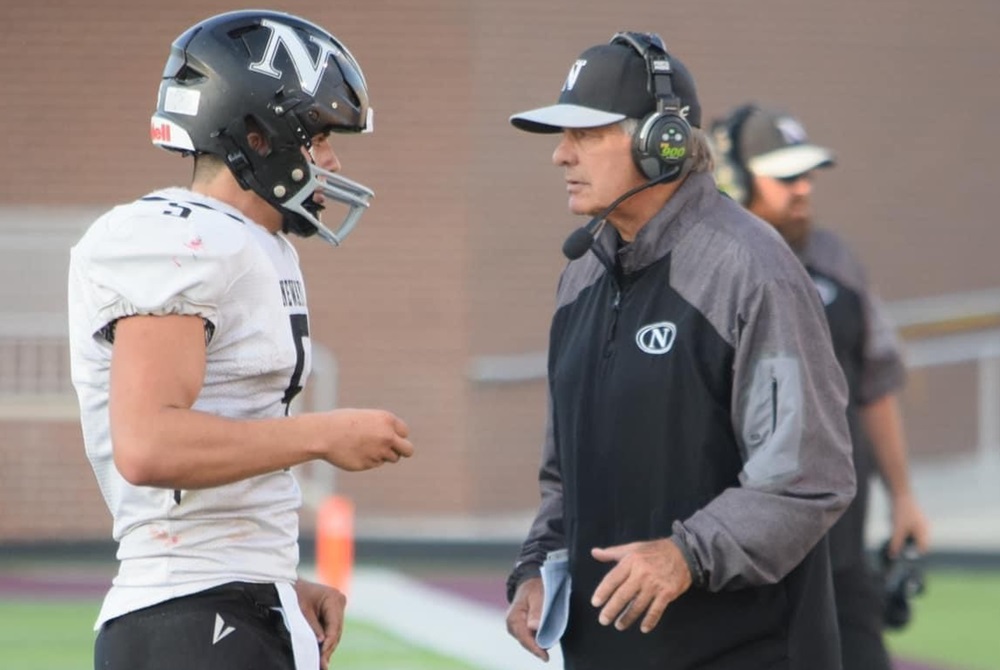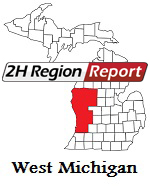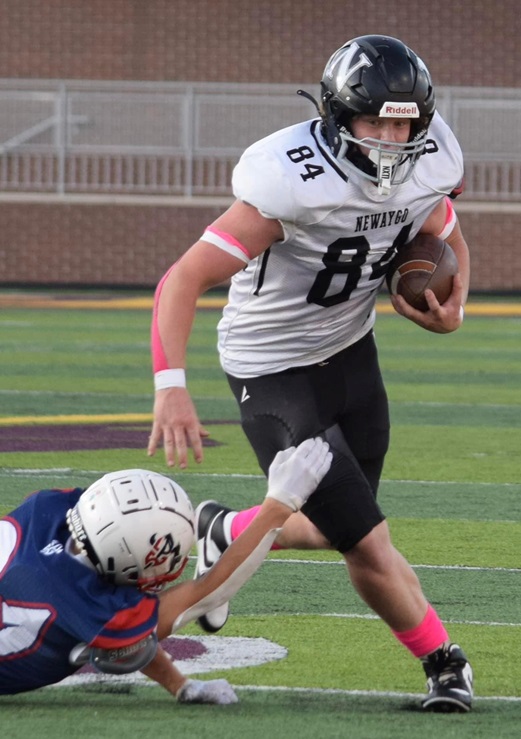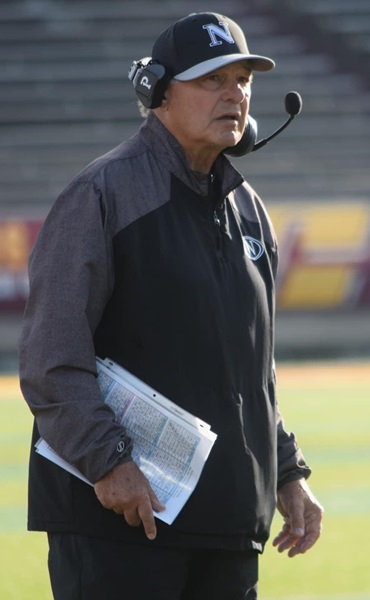
Strategize for First Parent Meeting
February 25, 2015
 By Scott Westfall
By Scott Westfall
MSU Institute for the Study of Youth Sports
Coaches often cite parents as one of the most uncontrollable and frustrating aspects of coaching.
Let’s face it, when this relationship goes south, there can be pent-up frustration and hard feelings between the two parties which can result in a negative experience for everyone involved – especially the player who is often caught in the middle.
Establishing positive relationships with parents should happen from the moment you stand in front of them at your annual parent meeting.
Throughout this meeting, parents will be asking themselves: “Can I trust this coach with my child?” “Will this coach be fair in his/her decisions?” and “Will this coach always have my child’s best intentions in mind?”
In order to put them at ease, you must do everything possible to establish yourself as a person of integrity who is altruistic and 100 percent trustworthy. Below is a coaching checklist that will help you establish trust and credibility with your team’s parents:
Transparency – Do things openly and share information as much as possible. If something bad happens on your team, be sure that you do not sweep it under the rug. Be open and consistent with your decisions, and always follow through on what you say you are going to do.
Demonstrate Respect – Be polite and sincere with parents and let your actions show that you care. Sometimes the little things you do will resonate louder than the big things.
List Expectations – Have high expectations for the conduct of both the players and parents in your program. List these expectations, distribute them, and then talk about them with the parents. Meanwhile, let them know what they can expect from you in return (proper dress attire, appropriate language, great sportsmanship, impeccable conduct, proper treatment of game officials, etc.).
Express Loyalty – As often as possible, be sure to praise your players, assistants, and the people associated with your program. Be sure that you never take credit for other people’s work, and remember to use the word “we” as often as possible.
Be Accountable – This means taking the blame for bad results– even when it wasn’t necessarily your mistake. Admitting when something goes wrong on your watch doesn’t mean that you are a bad coach or you’ve lost control of your program. True leaders are accountable for the mistakes that happen in their programs.
Deliver Results – This is not necessarily wins and losses. Instead, deliver results on the things that really matter, such as developing a respectable team, coaching players with all passing grades and having players who do not get into trouble or break the law.
No parent meeting would be complete without a healthy dose of paperwork. To make it easier for parents to keep these papers organized, try to color-coordinate the forms and go over them slowly one at a time.
Below are the basic documents you should supply at the parent meeting (Note: Try to also have these documents accessible on your team’s website):
Coaching Philosophy – Drafting a coaching philosophy will allow parents to better understand who you are and the reasons you coach. In this document, be sure to include your fundamental beliefs along with your personal approach to coaching. (Note: Be honest in this section – Do not advertise yourself as one type of coach, but then act like another). Include a lot of “I statements” such as, “I coach for the purpose of teaching life lessons,” “I believe that student comes before athlete,” and, “I am demanding but never demeaning.” Developing and drafting a coaching philosophy not only gives parents insight into you and your program, but it also gives you an opportunity to reflect upon why you do things the way you do.
Team Policies – This is perhaps the most important document you will distribute to your team’s parents. It should list all team rules pertaining to player conduct, grades, eligibility, attendance, discipline, communication, and of course playing time! Include statements such as, “Playing time is earned – not given,” “All decisions will be made based on what is best for the team,” and, “If you have a problem, please talk to the coach.” Inform parents that student-athletes will receive equal opportunities but not equal things. These opportunities include instruction, off-season strength and conditioning programs, and support for their classes. How well student-athletes take advantage of these opportunities (attendance, focus, effort, attitude, and self-discipline) often dictates their levels of success. (Note: Before distributing this document, make sure your school’s administration/athletic director supports your team policies 100 percent).
Student-Athlete Character Contract – While many schools have had an athletic code of conduct in place for years, teams today are including an additional written set of norms for players to follow. A character contract outlines how players agree to conduct themselves as a person, student, and athlete. If you want to create more buy-in, consider drafting this contract each season with your players!
Parent Pledge Form – This document establishes the expectations you have for the parents in your program. Be sure that you include expectations for their conduct at games, having a positive disposition around the team, the treatment of players on your team along with the treatment of your opponents, letting the coaches coach, and how to act toward game officials.
Team Calendar – Be sure to include detailed information on the times and locations of all practices, team events, games, and places that players need to be. If changes are made to the team calendar throughout the course of the season, be sure you inform parents through several forms of communication (a printed note sent home, an announcement on the team website, email list, social media, etc.).
Athletic Physicals – While most doctors’ offices have a copy of these blank forms on hand, it is convenient for parents to have access to them through your school.
Athletic Fees (if you are a “pay for play” district) – Some districts have a mandatory athletic participation fee, while other districts do not. Some districts have a waiver form for students who are on free/reduced lunch. In any of these cases, make sure you are on top of this information so you can properly inform your team’s parents at the meeting.
Conflict Resolution – The occasional conflict is almost inevitable while working in an emotionally charged environment such as athletics. However, conflicts can often be avoided or at least more easily resolved through proper forms of communication.
- Inform parents that you are always willing to listen to their concerns; let them know that you would prefer they address an issue with you, rather than taking their frustrations to the next game and venting to anybody in the bleachers who is willing to listen.
- In your team documents consider a statement such as, “The best tool we have in our relationship is an open line of communication. My door is always open and so is my mind.”
- Finally, be sure to let them know that if they are upset about something to not send it through email. Email is good for information, but not communication. Try to communicate and resolve conflicts in person as much as possible.
Once you have established trust and credibility with your team’s parents, you can start building the relationship. Caution: Building a relationship with your team’s parents is not developing close friendships with them. Becoming close friends with parents actually can lead to bigger problems as you open yourself to criticism of playing favorites. Instead, build working relationships, generated through mutual respect and understanding for each other’s position in the quest of helping the young individual become a successful student-athlete. These working relationships help parents understand their optimal level of involvement, such as where and how they can fit into your program. Below are some tips for building working relationships with parents:
- Learn their names and where they work.
- Learn what the family likes to do when they are outside of the school setting.
- Invite them to a team event such as a team picnic, fundraiser, or team trip.
- Ask parents for help with certain jobs. Many parents appreciate being asked to help with team functions as it gives them an opportunity to get to know other parents and makes them feel like they matter.
- Call them at least once per season to say hello, report on their child’s progress, and ask if there is anything you can do to be of assistance.
- Offer additional support for their child. Helping the student-athlete outside of coaching with things such as academics and typical teen issues shows you care.
- Offer support to the parents as well. If they are struggling to get a message across to their child, oftentimes a coach sending or reinforcing the same message makes all the difference. As a coach you hold a powerful platform with your student-athletes; use it to help with their development and maturity whenever possible.
Establishing yourself as a trustworthy and credible coach is the first step in getting parents to buy into your program. Meanwhile, providing parents with sufficient information will help them feel like you are keeping them informed and want them as a partner in your program.
Creating working relationships with parents takes time, but will be the cornerstone in establishing a positive experience for the years their children are involved with your program. While some parents may have a different background or mindset, listing your expectations will help them better understand your team’s culture and how they can fit in.
If done right, these positive working relationships should alleviate much of your coaching frustration and pay tremendous dividends in the future.
Scott Westfall has spent the last 10 years as a teacher, coach, and athletic director in Fort Collins, Colo. He currently is working on his Doctorate at Michigan State University, with an emphasis in Sport Psychology and Athletic Administration, and assisting the MHSAA with its student leadership programs. Westfall is a former athlete who participated in football, wrestling, tennis and cross country at the high school level, and rugby at the collegiate level. He can be reached at [email protected].

Back to Building Boys Into Men, Munger Bringing Newfound Success to Newaygo
By
Tom Kendra
Special for MHSAA.com
November 6, 2024
NEWAYGO – After a long, physical practice Tuesday, as the light rain started to intensify, Newaygo coach Ralph Munger decided to squeeze in a quick game of “Simon Says.”
 Within a few minutes, players were laughing, making fun of each other for clapping their hands when Munger didn’t say the magic words (and doing five push-ups as punishment) – and learning mental focus in the process.
Within a few minutes, players were laughing, making fun of each other for clapping their hands when Munger didn’t say the magic words (and doing five push-ups as punishment) – and learning mental focus in the process.
“He’s an old-style coach,” said Newaygo senior Henry Wood, a senior captain and two-way starter. “But he has a crazy passion for the sport, and his football IQ is insane.”
Simon Says is just one of proven techniques the longtime coach is using to teach and motivate his players at Newaygo, which is 8-2 and hosting Central Montcalm on Friday for a Division 6 District championship in just his second year as coach.
Munger, 72, is having a ball at his latest coaching stop and is up to 11 wins over his two years at Newaygo, a small, rural school northwest of Grand Rapids – after winning 80 games in 11 years at Frankenmuth and 255 games over 28 years at Rockford, the latter tenure including five Finals appearances and three titles. He entered this season the sixth-winningest coach in state football history, and heading into this weekend his career record is 343-117.
“We’re making strides, and things are starting to click,” said Munger, who was an all-state football player in his own right at Frankenmuth in the late 1960s. “I feel pretty good, and I thank God every day that he has allowed me to coach again.”
 Newaygo knocked off traditional Division 6 power Montague, 30-17, last week for the school’s first playoff win since 2018.
Newaygo knocked off traditional Division 6 power Montague, 30-17, last week for the school’s first playoff win since 2018.
The Lions are doing it with Munger’s beloved power game, led by senior quarterback Blake Kerr (55-of-99 passing for 805 yards and 10 TDs), junior running back Porter Slominski (130 rushes for 934 yards and 13 TDs) and senior running back Ethan Reyburn (104 rushes for 673 yards and 8 TDs).
Kerr, who has good size at 6-foot-2 and 200 pounds, has thrown primarily to his two fellow senior captains in split end Hunter Yearsovich (18 catches for 255 yards and 3 TDs) and Wood (9 catches for 140 yards and 3 TDs).
Luis Ceja Alvarez (5-10, 155), is a crafty, undersized linebacker who leads the defense with 34 solo tackles and 52 assists. Fellow linebacker Xavier Stroud has 17 solos and 32 assists.
Yearsovich, a team leader and two-way starter with a 4.4 GPA, said he and his senior teammates had an immediate connection with their Hall of Fame coach.
“I’ll never forget when we met him in the gym last year because he talked to us like we were men,” said Yearsovich. “With him, we don’t ever have the mentality that we’re going to lose, no matter who we’re playing. It hasn’t always been like that around here.”
As the Lions broke into groups in the middle of Tuesday’s practice, Munger headed off with the defensive backs.
The joy of hands-on coaching was apparent as he schooled them on back-pedaling and cutting on what could be a muddy playing surface Friday night, and then concentrating and catching a wet ball.
Munger, who had quadruple-bypass, open-heart surgery in the summer of 2019 and has undergone three separate spine surgeries, is thankful to still be able to stalk the sidelines with a whistle around his neck. He endured one long autumn away from coaching, during the COVID year of 2020, which is when he knew he wasn’t done.
“I was going stir crazy,” said Munger with a grin. “I needed my football fix, anywhere.”
 That led him to tiny Mancelona High School, which is near his cabin in northern Michigan, where he helped coach the offensive and defensive lines in 2021 and 2022. He then in 2023 pursued and landed the Newaygo head coaching job, which is a 30-minute drive from his home in Rockford.
That led him to tiny Mancelona High School, which is near his cabin in northern Michigan, where he helped coach the offensive and defensive lines in 2021 and 2022. He then in 2023 pursued and landed the Newaygo head coaching job, which is a 30-minute drive from his home in Rockford.
He led Newaygo to a fairly typical 3-6 record last year. But with a full year of his coaching under their belts, the Lions are enjoying a breakthrough fall.
Newaygo finished the regular season 7-2, with the only losses coming against Reed City and Big Rapids, who are both still alive in the playoffs. One of the wins came against this week’s playoff opponent, Central Montcalm, 21-12, in Week 2.
Another victory over CM would earn the Lions yet another home game, against the winner of Ovid-Elsie at Lansing Catholic, this time for a Regional championship. Newaygo has never won a football Regional title, and 2012 was the only year it won more than one playoff game, losing to Grand Rapids West Catholic in a Division 5 Regional Final.
Munger said, at this point in his life, his only goals are to bring some positive energy to Newaygo and help his players make the transition from boys to men – the same thing he has been doing for almost 50 years.
“I am enjoying myself, very much so,” said Munger, who is a member of six Halls of Fame for his coaching achievements. “I find it fun getting after all the challenges out here. That’s what drives me.
“That’s the calling that the Good Lord has given me.”
 Tom Kendra worked 23 years at The Muskegon Chronicle, including five as assistant sports editor and the final six as sports editor through 2011. E-mail him at [email protected] with story ideas for Muskegon, Oceana, Mason, Lake, Oceola, Mecosta and Newaygo counties.
Tom Kendra worked 23 years at The Muskegon Chronicle, including five as assistant sports editor and the final six as sports editor through 2011. E-mail him at [email protected] with story ideas for Muskegon, Oceana, Mason, Lake, Oceola, Mecosta and Newaygo counties.
PHOTOS (Top) Newaygo varsity football coach Ralph Munger, right, talks things over with his senior quarterback Blake Kerr during a 53-26 win over Lake Odessa Lakewood on Oct. 18 at Central Michigan’s Kelly-Shorts Stadium. (Middle) Senior tight end Henry Wood (84) works to get past an outstretched defender. (Below) Munger, play sheet in hand, has led the Lions to an 8-2 record. (Photos by Tashina Kerr.)

